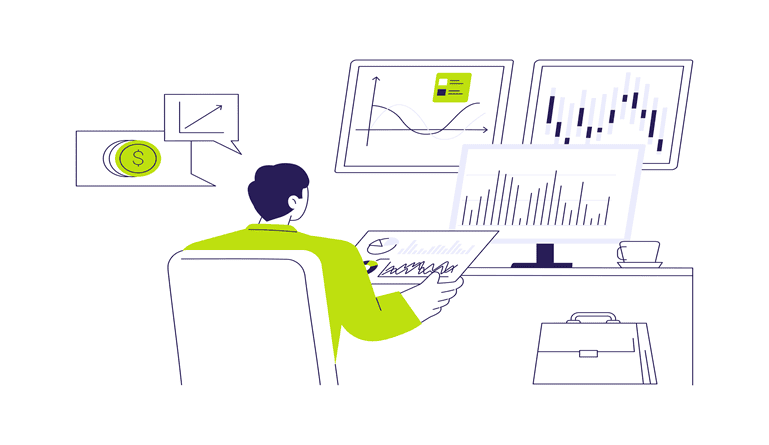What is “digital identity” and why is it important?
Benefits of using blockchain technology for digital identity.
The digital-capable landscape of today – financial and otherwise – has changed the lives of customers and businesses both. It has provided a lot of convenience – customers can make transactions online without leaving their home and can transfer money to different banks without every stepping foot in a bank.
But the increase of digitization has also led to an increase in fraud, identity theft, and compromised account information. Many businesses are working towards developing a “digital identity” for customers to ensure security and reduce consumer risk of fraud.
What is a digital identity?
A digital identity has been proposed to replace the easily-corruptible username and password logins that nearly all ecommerce businesses rely on. It has also been proposed to give those in other countries without official documentation or traditional paperwork to be able to conduct business and have a represented, significant identity.
The importance of digital identity, then, is primarily in offering users better data security and control over the information that businesses can see or collect about them for purposes of transactions, as well as offering people a streamlined form of identity that can serve them across multiple mediums.
How does blockchain contribute to digital identity?
Blockchain is a decentralized ledger technology, which means that, combined with a security method like encryption, information would be more in the users control. Transactions could only be conducted when securely linked to that digital identity and authorized by that user. Users would also be able to control what bits of information an organization or government entity could see at a time, instead of linking all personal information (name, phone number, address, birthday, job, income, and other pieces of information that are usually associated with accounts like loans, credit cards, and even social media). A user would give permission for a website to access the verified age information from their digital identity, for instance, when making a purchase that required someone to be of a certain age.
Using blockchain to help create digital identities could be a step forward in preventing fraud and information misuse.
What are the benefits of using blockchain to create and maintain digital identities?
Efficient: With a single identity that’s verified and useable across the globe, transactions can be conducted easier.
Private: Users can decide where their data is stored, as well as when and where to share that data.
Secure: A decentralized ledger network means that bits of information are stored over thousands of devices, as opposed to one large place that could be a target for hackers. It’ much harder for someone to piece together user information when parts of it are stored here and there, rather than in one centralized database.
Are there any other benefits you could see from digital identity? Do you believe that the importance of digital identity is mainly in the areas of data security and user control, and are therefore worthwhile to pursue? Do you think that digital identity would increase consumer confidence in conducting business and ultimately help to grow revenue for organizations?




